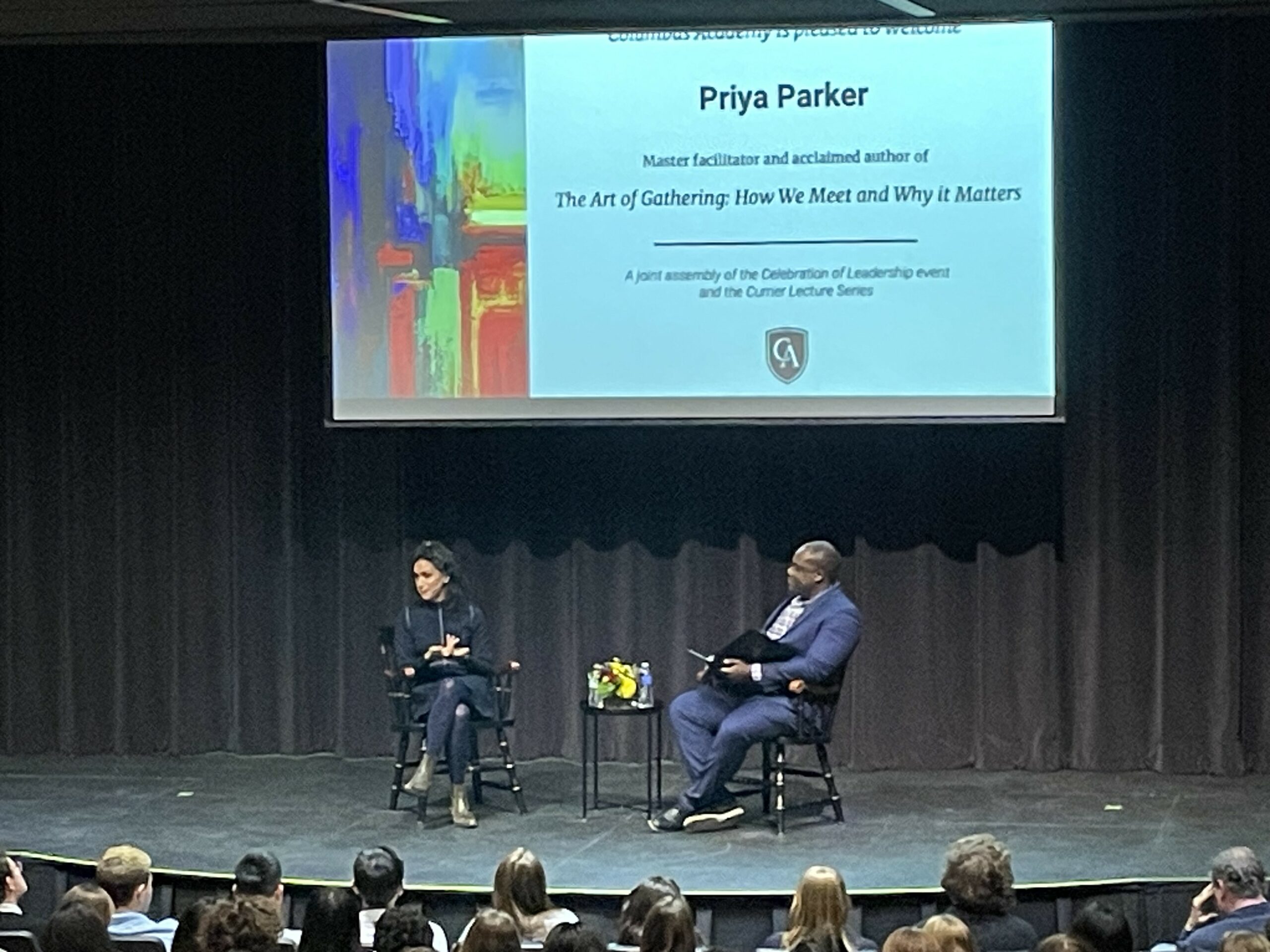On Monday, November 4, Columbus Academy welcomed Priya Parker to share her work about social gatherings and conflict resolution as a joint Celebration of Leadership and Currier Lecture. She is the author of The Art of Gathering: How We Meet and Why It Matters and studied organizational design at M.I.T., public policy at the Harvard Kennedy School, and political and social thought at the University of Virginia. She has spent the last two decades helping people discover the how and why of effective communication and leadership when people come together.
Instead of giving a traditional presentation, Parker had a conversational interview with Dr. Losambe who asked questions about how her life influenced her career path. Born to white and Indian parents that later separated, she found herself early on having different dinners (e.g. one with prayer vs one that is secular) illustrating how the two feasts varied in culture and motive. The two households also contrasted politically, with her father leaning conservative and her mother skewing liberal. During her time at UVA as an undergraduate, Parker worried about the state of race relations on campus and so joined Sustained Dialogue, UVA’s chapter of the national organization called Sustained Dialogue Campus Network (SDCN), which helped her learn how to guide conversation. She also mentioned how a good gathering begins with a specific, disputable purpose. A host does not need fancy chairs or a nice house to have a popping party. Likewise, moms do not need apple juice to talk honestly about their kids during a cocktail party on a dreary Tuesday night in November. Although a good group leader is important in having a successful get-together, participants are just as critical to facilitate them and be active listeners in a productive setting.
After the lecture, I asked the author what her thoughts were on mandatory meetings and whether or not they had weaker purposes than non-compulsory ones, referring specifically to our weekly assemblies. She addressed it in two parts. First, if only the event being mandatory bothers us, then it speaks to our relationship and distaste with authority. It is normal to be upset when someone forces another person to do something. However, the fact that someone has to attend does not inherently mean it is terrible. Second, if the gathering is forced and very bad, then it needs to be changed. As part of being good participants, we have an obligation to tell positions of authority to make alterations that improve the quality and purpose of gatherings. So if someone has issues with too many announcements, complaining about it will not solve the problem. A disgruntled upper schooler should contact STUCO and offer recommendations in their suggestion boxes. In doing so, we can ensure both speaker and audience members gain something valuable when they set aside time to be with one another. In an age with more technology, information, and distractions than ever before, the need to host great gatherings and make the best of our time together will only grow.
You can head to her website at https://www.priyaparker.com/ to get her book and learn more!








